SISUMMA- European Social Initiative of Support to Minorities through Media Activism
Financial support:
EC Europe for Citizens Programme
Project duration:
October 2016 – March 2018
Coordinator: Margit Säre, margitsare @ gmail.com
The project is lead by Euro-Arab Foundation for Higher Studies from Spain, in cooperation with four European partners
Project website: www.sisumma.com
SISUMMA aims to foster young Europeans’ engagement as active citizenship through several trainings and media activism.
-Youth will be encouraged to reflect and debate on multicultural coexistence and respect towards other citizens, minorities and vulnerable groups as the major guarantee for the sustainability of the democratic project for which the Union stands.
-Citizen debates and discussion groups open to the public including policymakers and stakeholders will be organised. Media analysis on key topics such as linguistic, ethnic and religious diversity will be the basis for discussion.
-Media literacy workshops will constitute a powerful tool where young people will create counter narratives against discrimination that will show a more realistic view of citizens belonging to minority groups such as immigrants. Special emphasis will be made on disseminating participants’ creations in partner’s countries, offering these young citizens a unique opportunity for cross-cultural and societal engagement at European level.
- A transnational network will be set up to foster cross-cultural debate on practical solutions against discrimination.
Project activities
1) Project kick-off seminar in Garanada; 3-6 October 2016
Press release: EUROPEAN NGOs JOIN FORCES TO REDUCE XENOPHOBIA IN EU;
Granada 4 November 2016
2) A roundtable session with teachers to present SISUMMA project; different available online sources on global education and materials; Alatskivi school; 21-25 November 2016
3) Teaching material on migration
Press release
We live in “the age of migration” because human mobility has become one of the most emblematic contemporary phenomena. Thanks to new communication technologies and modern transportation means mobility across long distances is also easier. People look for new opportunities but also for ways to escape from countries with conflict zones, environmental disasters etc.
To make this complex issue more understandable, Peipsi Center for Transboundary Cooperation has published teaching material (in Estonian language) . Material is meant for educators and teachers to give information on global trends, statistics related to refugee issues in the world and Estonia. Detailed information is given on legal issues, terminology; also links to useful materials and maps, also to organisations, working with refugees.
The material is available in Pdf format and is distributed with paper copies to our partner schools
Presentation of the publication took place on 7 December 2016, in Tartu.
4. Seminar for students on migration and refugee issues; 7 February 2017
A.Astapova lecture on migration and refugees
Student had also possibility with help of virtual reality to experience life in Za'atar refugee camp in Jordania together with girl named Sidra
5.Students present their video clips on migration and refugees in Europe and in Estonia; 18 April in Tartu, Estonia
Peipsi CTC in cooperation with Tartu University Department of Folklore organized series of seminars aiming to give deeper knowledge on tendencies of migration and asylum-seeking in Europe. In addition to theoretical knowledge and debates practical workshops were conducted how to do fieldwork in sensitive communities and make videos.
As a final assignment, the students submitted their own assignments: 3-7 minutes' video clips on the topics of migration and refugees, to be presented 18 April in Tartu.
The range of the topics the students have taken is exciting: Jewish diaspora in Estonia, Ingrian Finn minority in Tartu, the bureaucracy a refugee coming to Estonia should go through, the aspirations of Estonian and non-Estonian students studying in Tartu, cases of xenophobia experienced by foreign students in Tartu, experiences of various ethnic groups abroad, and many others.
6.Peipsi CTC SISUMMA project team participates at European Migration Network's annual conference "The EU in the Global Race for Talent" in Tallinn. The overall aim of this Estonian EU Presidency Conference is to review the current state of talent migration in the EU and to encourage an exchange of ideas between key stakeholder
7.SISUMMA workshop on ethnic identity and belonging ; 4-6 October 2017: in Narva.
Around 70 participants are getting together for the international seminar “Negotiations of Belonging”, organized in cooperation between the University of Tartu and Peipsi Center for Transboundary Cooperation.
The seminar will be held in Narva town, on the border between Estonia and Russia or, as some might say, the West and the East. Narva is uniquely situated to inspire and host explorations into diverse modes and notions of belonging.
Seminar brings together students and young scholars from different countries and giving them an opportunity to present their research in the field of ethnic identity and belonging. On 6th of October SISUMMA project workshop is organized as part of the seminar, in order to promote more lively and less academic debate on identity issues. The main presenter of the SISUMMA workshop is Jevgeni Ljapin, a rap singer from Narva, who is particularly known for his song “I am Russian, but I love Estonia” (Ma olen venelane, aga ma armastan Eestit), in which he argues that living in Estonia, Russian speakers should stop complaining about and only benefitting from the Estonian state, rather, they should become the active and patriotic part of its civil society. The song became very popular, but was perceived in a contradictory way by various parts of population. On the one, hand, Evgeni was blamed for his idealization of and integration in Estonia, on the other, he received official gratitude from Estonian parliament for speaking out what many politicians prefer to be silent about. The participants of workshop will receive the possibility to learn how the border shapes the ethnic and personal identity of an individual, how the particular context of the town of Narva may influence it, and what means to counter the dominant attitude of the place one lives at.
In addition SISUMMA project other activities, as well as SISUMMA Declaration for a Multicultural Coexistence will be presented.
8. Student videos on tolerance, diversity and acceptance of minorities in Mustvee School
On 20 December 2017 Mustvee School 1-9 classes students introduce their work – short video clips – they were working with during last two weeks.
The start point for video creation was celebration of international Human Rights Day of 10 December. With the guidance of educators children were discussing issues on tolerance and diversity , were creating video scenarios, animations and also tried video shooting and tried video creations tools.
In total 9 videos were prepared.
Today the best works are being announced and awarded.
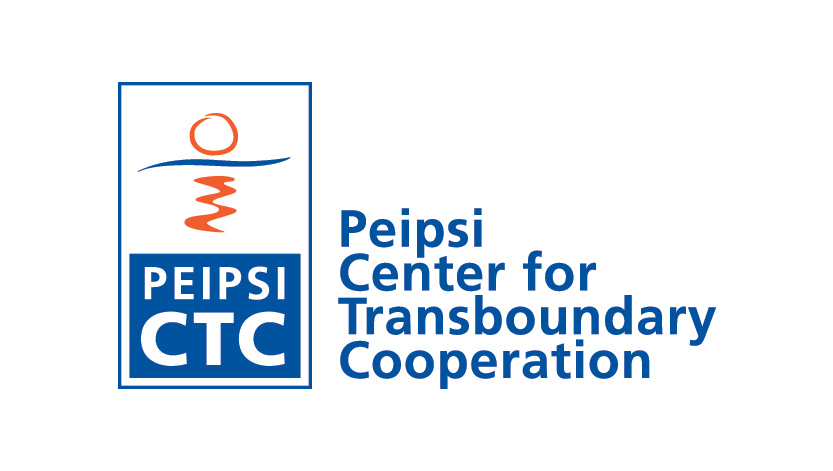
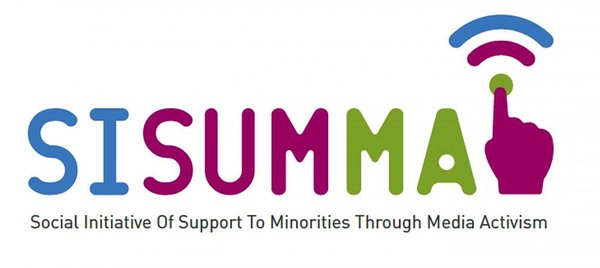
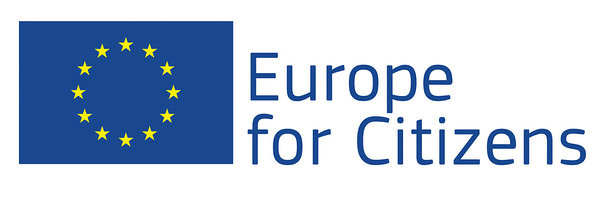
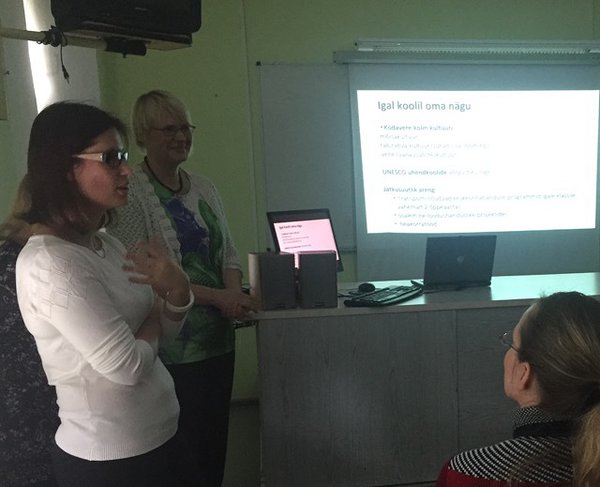
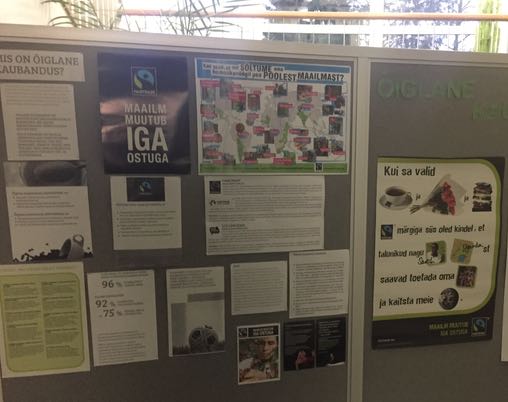
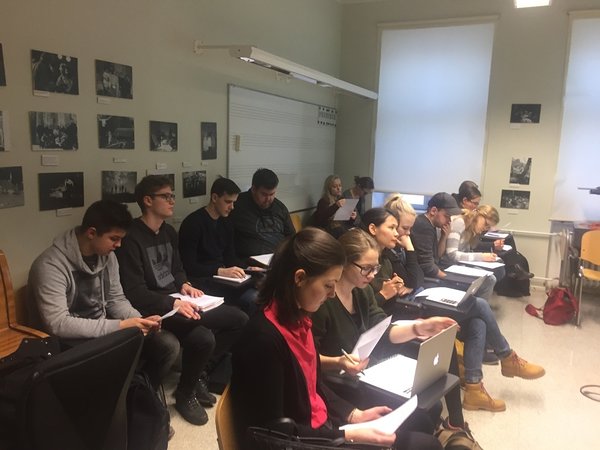
_block.jpg)
_block.jpg)